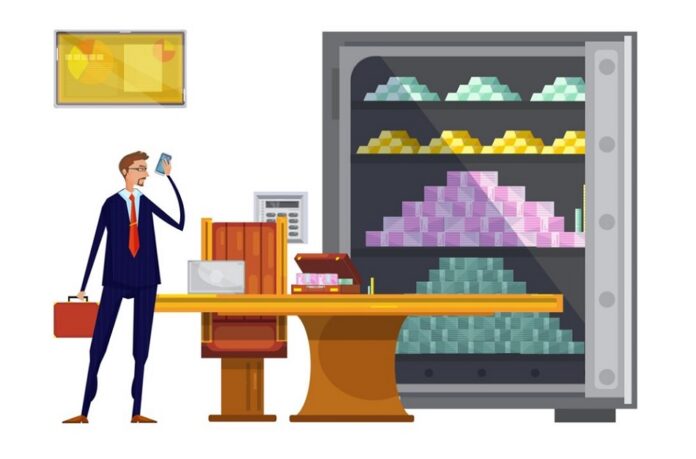Vending machines offer an intriguing business opportunity. The idea of passive income from automated machines selling snacks, drinks, and other goods is appealing. But is starting a vending machine business really a wise investment in 2023?
In this comprehensive guide, we’ll look at the pros, cons, costs, and profit potential of the vending machine industry today. You’ll learn everything you need to know to buy a vending machine is a good way to start or grow your own business.
How Much Can You Earn From a Vending Machine Business?
The biggest question surrounding the vending machine business is profit potential. How much money can you actually make per machine?
There are several factors that determine vending profitability:
- Type of machine – Food/snack machines earn more than soda and water.
- Product prices – Higher priced goods equal higher revenue.
- Location traffic – More potential customers means more sales.
- Restocking – No sales when a machine is empty.
According to American Vending Sales, average vending machine earnings per week are:
- Food/snack machines – $80 to $150+
- Soda & water – $60 to $125+
- Bulk vending (toys, gumballs) – $20 to $60+
So a food machine can earn approximately $200 to $600+ per month on average. Though in prime locations they can make much more.
Let’s say your 10 snack machines each earn a modest $300 per month. That’s $3,000 monthly or $36,000 annually across your small vending business.
Bulk vending machines have lower profit margins but require far less upfront investment. Gumball and capsule toy machines can complement a vending startup nicely.
With the right approach, vending provides anything from part-time side income to a full-time small business, based on your investment in machines.
Vending Machine Startup Costs and Operating Expenses
Launching any small business involves costs. So what type of funding do you need for a vending startup?
Vending Machine Purchase Costs
used or New vending machines typically cost:
- Food/snack machines – $2,000 to $7,000+
- Drink machines – $1,500 to $4,000+
- Bulk vending – $500 to $2,000
Expect an initial investment of $10,000 to $50,000+ to acquire 5 to 10 machines. Leasing vending machines can preserve capital.
Initial Vending Machine Inventory
You’ll need to fully stock each machine with an initial inventory purchase. Plan on $300 to $1,000 per food/snack machine.
Then budget ongoing monthly inventory costs of $150 to $300 per machine as stock is purchased.
Location Commissions and Rent
To place vending machines on a property, you often pay 10% to 20% of sales in commission fees. Alternatively, a flat monthly rent of $50 to $100 per machine may be charged.
Maintenance and Repairs
Allocate around $50 monthly per machine for any needed maintenance, repairs, or cleaning to keep units functioning properly.
Additional Operating Costs
- Fuel for collection and transport
- Cash collection supplies and security
- Vending machine locks and security measures
- Business Insurance
- Licensing fees
- Accounting services
In total, plan on $15,000 to $25,000 in operating capital to start a vending machine business, along with access to inventory financing.
Also Read: How Much Is A Vending Machine Cost? A Detailed Guide
Which Type of Vending Machine is Most Profitable?
If your goal is to maximize vending profit margins, food and snack machines generate the highest returns. Food items have wider markups than drinks per dollar.
Food/snack vending machines can vend:
- Fresh prepared meals and sandwiches
- Packaged snacks, candy, and gum
- Hot and cold beverage vending machine
- Health foods and nutrition bars
The most profitable vending machine products tend to be:
- Fresh food items
- Hot coffee and specialty drinks
- Packaged candy, snacks, and gum
- Nutrition/energy bars and healthy snacks
Fresh food machines earn the most but need extra maintenance and inventory monitoring. Refrigerated units also have higher costs.
Beverage machines generate moderate profits, especially for energy drinks, premium coffees, and teas.
Snack vending is common and profitable. Candy, chips, and granola bars all sell well with good margins.

Though less per machine, gumball and capsule toy bulk vendors have far lower startup costs. They complement a vending portfolio nicely.
Carefully analyze potential locations when selecting your ideal machines. Vend what sells best in each unique environment.
What is the Typical Lifespan of Vending Machines?
With proper maintenance, most commercial vending machines have long, reliable lifespans. Here are typical new machine lifespans by type:
- Food/snack machines – 10 to 15 years
- Soda/beverage machines – 12 to 20 years
- Bulk vending – 15 to 20+ years
Well-built vending machines can sometimes operate for 20 to 30 years. New technologically advanced machines may have shorter replacement cycles, however.
Buying quality refurbished/used machines can be smart to start with less upfront capital. Expect somewhat shorter lifespans of 5 to 10 years.
Regular cleaning, preventative maintenance, and minor repairs maximize any machine’s working life.
What Does it Cost to Stock and Restock a Vending Machine?
A key but overlooked vending machine business expense is the wholesale cost of goods sold. The products loaded in the machines directly impact profit margins.
As a general rule, plan on dedicating 30% to 40% of vending machine sales revenue to restocking inventory.
Here’s an example profit estimate for a $100 weekly average selling snack machine:
- $100 weekly revenue
- $35 weekly product cost (35% of sales)
- $15 rent/commission (15% of sales)
- = $50 weekly profit
Out of $100 in sales, it costs about $35 to re-stock sold inventory. That leaves $65 minus expenses as profit.
For beverage machines, product costs running a vending machine business are 25% to 30% of sales. Food items are 30% to 40% for pre-packaged goods.
Carefully track best selling items in each location. Purchase inventory at wholesale rates when possible. Popular products bring the highest markups.
Also Read: How Much Does A Vending Machine Cost: A Comprehensive Guide
Top Advantages of Owning a Vending Machine Business
While it takes an investment to start, vending provides some nice advantages including:
1. Passive Income Potential
Once set up, vending machines can generate largely passive revenue with minimal ongoing time commitment. No active sales staff is required.
2. Flexible Schedule
The vending machine business can be operated part-time or full-time. Maintenance and restocking can be done outside of regular business hours.
3. Scalability
You can grow your business over time by adding machines in new locations for incremental profits. Start small or expand fast.
4. Consistent Demand
Vended snacks, drinks, and goods typically see stable demand year-round. People always seek convenient food options.
5. Low Overhead
Aside from the machines, vending requires little infrastructure, facilities, or personnel. Overhead expenses stay low.
6. Small Business Perks
Vending can be run as a sole proprietorship or small family business. This qualifies for small business loans, grants, and tax benefits.
While not without risks, these advantages make vending an appealing business model for many entrepreneurs. However doing thorough research is still important.
Potential Downsides and Cons to Consider
Some key drawbacks to weigh when evaluating a vending startup include:
1. Large Upfront Investment
The vending machines, inventory, and operating capital require significant upfront funding, often $15,000+ at minimum.
2. Ongoing Operating Costs
You’ll have recurring monthly expenses for inventory, maintenance, rent, transportation, etc. Profits are what’s left.
3. Machine Malfunctions
Despite maintenance, vending equipment can break down unexpectedly. Repair costs quickly diminish profit margins.
4. Slow Sales in Some Areas
Machines placed in low traffic locations may not generate enough sales to justify the investment.
5. Commodity Pricing
Pricing for snacks and drinks tends to be a thin profit margin in a competitive vending marketplace.
6. Vandalism/Theft Risks
In some regions, vandalism of or theft from machines can be an unfortunate issue that requires security measures.
7. Market Saturation
Large vending machine operators may already have machines placed in the most lucrative locations within an area.
Carefully weigh these potential downsides before moving forward. However, vending can be quite profitable with the right business approach.
Top Locations for Placing Your Vending Machines
One key factor in vending machine success is securing placement in prime locations. Look for spots with consistent foot traffic and demand.
Here are some ideal vending machine placement locations to target:
- Office buildings and business parks – Large daytime populations and recurring sales.
- Warehouses and manufacturing facilities – 24/7 operations with shift workers.
- Colleges and schools – Lots of hungry students looking for snacks and energy drinks.
- Hospitals and medical centers – Visitors, staff, and patients need quick meals and refreshments.
- Gyms, pools, parks, and recreation centers – Active individuals tend to purchase more drinks and healthy snacks.
- Public transportation hubs – Airports, bus stations, ferry terminals. Large captive audiences.
- Rest areas and travel plazas – Travelers stopping for food, gas, and rest.
Ideally, look for vending locations with steady foot traffic over 50+ people per day and limited alternative food sources nearby. More potential customers means more sales.
Also carefully consider visibility, access, and security for your machines. Well-lit and convenient locations tend to see the most purchases.
Are Vending Machines a Smart Investment in 2023?
Vending machines certainly will not suit every entrepreneur or provide passive income automatically. However, the vending machine business model offers some compelling advantages if executed strategically.
Here are key factors to consider when investing in a vending machine:
Consistent Demand – People always need convenient food/drink options away from home. Vending provides on-demand access.
Passive Business – This lets you earn largely passive income once machines are in place and stocked.
Flexibility – Operate full or part-time. Maintain and restock on your schedule.
Scalability – Start small or expand to hundreds of machines. Grow at your own pace.
Small Business – Usually a sole proprietorship or family-run startup. Qualifies for incentives.
Stable Markets – Snack and drink sales remain fairly consistent, even in down economies.
While success ultimately depends on your marketing, customer service, and business operations, vending machines can enrich many entrepreneurs if done right.
Conduct thorough research before investing. Calculate realistic profit projections. Vending success requires the right mindset, business knowledge, and access to top locations.
If starting a scalable, flexible small business appeals to you, vending may be a profitable path to pursue. With adequate startup capital and business preparation, operating a vending machine business is very achievable.
Frequently Asked Questions
Are vending machines profitable investments?
Vending machines can be quite profitable if placed strategically in ideal high traffic locations. Well-run food/snack machines generate average profits of $200 to $600+ each per month. Total earnings depend on the number of machines.
Do vending machine business owners have to pay rent?
For vending machine owners rent is not required but is commonly paid for prime vending locations. Expect to pay 10-20% of sales as commission fees or $50 to $100 per month in rental charges. Negotiate the lowest rate you can per location for vending machines.
Is a vending machine business taxed?
Yes, all vending machine income is fully taxable. You must pay income taxes on profits earned, charge sales tax as required, and comply with other relevant business tax rules in your region.
What are the best locations to place vending machines?
Top vending spots are busy public places like offices, warehouses, schools, medical centers, recreation facilities, transportation hubs, rest stops, etc. Look for visible, convenient locations with consistent foot traffic of over 50+ people per day.
